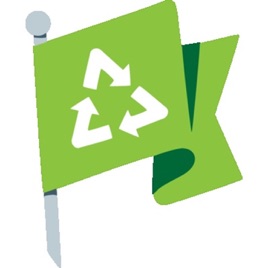
Advertise on podcast: Earth911.com's Sustainability In Your Ear
Rating
4.7 from
Country
This podcast has
456 episodes
Language
Publisher
Explicit
No
Date created
2018/05/13
Average duration
43 min.
Release period
8 days
Description
Earth911's Mitch Ratcliffe interviews activists, authors, entrepreneurs and changemakers working to accelerate the transition to a sustainable, post-carbon society. You have more power to improve the world than you know! Listen in to get started saving the planet!
Social media
Check Earth911.com's Sustainability In Your Ear social media presence
Podcast episodes
Check latest episodes from Earth911.com's Sustainability In Your Ear podcast
Earth911 Podcast: Xworks CEO Electra Coutsoftides on Pioneering Waste Networking
2024/02/26
Meet Electra Coutsoftides, CEO of Xworks, who is building a business network to catalyze recycling progress. Xworks designed its platform to enhance waste handling and trading by accredited waste professionals. The U.K.-based company provides digital compliance reporting capabilities, making it easier for businesses and recycling programs to meet regulatory requirements. Members are verified before joining to ensure user trustworthiness, a keystone in any successful network. That confidence that trades are legitimate is essential to promoting a more efficient and reliable environment for trading and collaboration. In the past, these business conversations have taken place at industry conferences rather than in real time. A digital network can accelerate the industry’s progress. Suppose we can streamline connections, save time, reduce costs, and improve the integrity of transactions within the waste and recycling industry. In that case, we can make it more profitable to clean up our mess. You can learn more about Xworks at https://xworkstech.com
more
Earth911 Podcast: Dandelion Energy CEO Kathy Hannon on the Promise of Residential Geothermal Heat Pumps
2024/02/19
Kathy Hannun, president and cofounder of Dandelion Energy, introduces an untapped heating and cooling capacity source for homes -- geothermal energy. Typically associated with high temperatures and geologically active areas such as hot springs or locations at the intersections of tectonic plates, geothermal heat pumps tap into the consistent year-round temperature of Earth’s outer crust to maintain a comfortable home environment. Dandelion emerged from Google X Lab and is transforming the heating and cooling choices available to New York, Connecticut, and Massachusetts homeowners.
The Dandelion Energy system includes a heat pump inside the home and buried pipe systems, called ground loops, that transfer heat to or from the building. Geothermal technology is more efficient, cost-effective, and environmentally friendly than traditional furnaces, offering lower operating costs and reduced environmental impact. Kathy shares how the company started and its partnerships with utilities in the Northeast that are embracing geothermal to preserve their business and cut the peak energy demands that tax the power grid and increase emissions during high-demand events like cold snaps and heatwaves. You can learn more about Dandelion Energy at https://dandelionenergy.com/
more
Earth911 Podcast: EVRNU's Stacy Flynn On Creating Circular Fiber For Sustainable Fashion
2024/02/12
Clothing and textile recycling has historically been scarcely available to consumers. It has yet to be successful, with clothing piling up in warehouses or being sent overseas instead of becoming a new generation of apparel. Stacy Flynn, CEO and co-founder of Evrnu, a textile innovations B Corporation, works to reduce the fashion industry's environmental impact with a circular, recycled cotton fiber called Nucycl. In this crucial conversation, Stacy discusses how we can encourage companies to stop making products while washing their hands of the environmental consequences of the take-make-waste approach to business. Fast fashion has inspired youth to wear clothing just a few times, but clothing can last and become an integral part of one's identity, not just when it's new. Making clothing last and recognizing and celebrating a fashion brand's durable clothing is one way to help create a movement for sustainable clothing and textiles for the home and office.
Evrnu made a significant mark in the sustainable fashion industry with a technology that recycles cotton garment waste to create premium, renewable fibers. This process gives a new life to discarded textiles. It reduces the need for virgin resources, reducing waste and pollution. Nucycl is a biodegradable material made from cotton that can be engineered for various uses, from intimate apparel to waterproof outdoor gear. Evrnu is pioneering innovative solutions that are both environmentally responsible and economically viable. With the growing demand for sustainability in the fashion industry, EVRNU's goal of making all textiles recyclable by 2030 and achieving a net-neutral fashion industry by 2050 are bold targets we wanted to explore. You can learn more about EVRNU at https://www.evrnu.com/
more
Earth911 Podcast: The Resource Renewal Institute's Chance Cutrano on Putting Fish Back in the Fields
2024/02/05
Chance Cutrano is director of programs at the Resource Renewal Institute in Fairfax, California. He and his team are experimenting with blending two activities, rice and fish farming, to reduce the emissions from rice fields while creating additional income for farmers. It's a practice recovered from antiquity that led to the launch of the Fish in the Fields program, which lowers carbon equivalent emissions created by rice farming by as much as 66% while improving biodiversity. Fish in the Fields recently won the 2023 JMK Innovation Prize from the JM Kaplan Institute.
Nature does an amazing trick: it uses everything. Wherever there is an untapped source of energy, nature facilitates the differentiation of species to evolve a creature, large or small, that will consume that energy. Human industry went the other way, dumping every leftover item of waste instead of finding a way to use it — the consequence is a society that cannot live within the planet's ability to provide enough resources each year. Farming is an excellent testing ground for integrating previously disconnected industries. For example, last year, we talked with Lundberg Family Farms's Bryce Lundberg, who embraced a regenerative approach to growing rice that supports migratory birds during winter when fields are flooded.
Farming, which can be closely tied to nature when it breaks with industrial thinking, is a natural incubator of complex systems that minimize or reduce waste while contributing to the restoration of biodiversity. It might be the place where businesses will learn regenerative practices. The transition to a green, carbon, and resource-neutral economy will see many companies, communities, and nations begin to tear down the arbitrary silos in which they operate today to create circular flows of materials and energy at levels of efficiency we cannot dream of from the confines of the take-make-waste worldview.You can learn more about the Resource Renewal Institute at https://www.rri.org/fish-in-the-fields
more
Earth911 Podcast: Project Censored's 25 Under-Reported Environmental Stories of 2023
2024/01/29
As we enter 2024, closing the books on 2023's record heat, economic and geopolitical turmoil, and a raft of climate change stories in the mainstream press, we're fortunate to have Project Censored's Andy Lee Roth return to the show to discuss the most under-reported environmental stories of the last year. Andy last visited with us to discuss 2022's under-reported stories. Tune in for a wide-ranging conversation about the hidden environmental stories reported on independent news sites like The Guardian, High Country News, and other news sources tracked by Project Censored.
The mainstream press has responded to rising public concern about climate change with more practical information — they've assigned sustainability as a beat and hired columnists to deliver action-oriented articles. But at the same time, they do not do the enterprise reporting required to uncover significant environmental abuses by companies and governments. We're getting more attention to the climate crisis but not enough digging into its continuing sources, from misleading research funded by private companies to the lack of oversight of new products and chemicals, like per- and poly-fluoroalkyl substances.
The news is what we make it, and in this era of transactional politics, too often, it is what we are willing to pay for. Now more than ever, an independent press is necessary. You can learn more about Project Censored's 2023 under-reported environmental stories at https://projectcensored.org
more
Earth911 Podcast: Can Nano Nuclear Energy's Microreactors Deliver Equitable Electricity?
2024/01/22
Despite its other environmental impacts, including toxic waste that requires centuries or millennia of storage in facilities designed to protect future generations from the genetic and acute effects of radiation, nuclear power is considered by some influential environmentalists an essential component of the post-fossil fuel economy. For example, James Hansen, the NASA scientist who raised the alarm about global warming in Congressional testimony in 1987, advocates expanded nuclear energy generation. Meet Jay Yu, founder, executive chairman, and president of Nano Nuclear Energy Inc., and James Walker, CEO of the company. Nano Nuclear develops smaller, portable nuclear microreactors that can be moved to where electricity is needed on a truck. These microreactors can generate between 1 and 20 megawatts of energy, enough electricity to power as few as 400 homes or up to 20,000 homes, depending on their needs — and that's plenty for many large manufacturing companies to use in a crisis when other sources of power are down. Nano Nuclear is working on two designs, the Zeus and Odin reactors, for different uses.
Jay and James offer arguments for considering the role of microreactors in various settings we've discussed on the show. Ocean freight shipping, for example, accounts for 2% of humanity's annual carbon emissions, and a microreactor is about the same size as a diesel engine, so it could easily replace today's engine. Bringing inexpensive electricity to low-income countries could provide power to run water desalination plants and air conditioners as the planet warms and create economic opportunities that have never developed in the fossil fuel era. When you introduce new energy platforms, there is a chance to reorganize society for greater fairness. But there is still the question of what to do with spent nuclear fuel. The United States shut down its Yucca Mountain storage project, the country's only deep geological long-term storage facility, for many reasons, including the well-justified protest by the indigenous communities that live near the site. You can learn more about Nano Nuclear Energy at https://nanonuclearenergy.com/
more
Earth911 Podcast: Ben Vivari On Getting Started With ESG Investing
2024/01/15
2023 was a challenging year for environmental, social, and governance (ESG) investing, even though more capital continues to flow into ESG-reporting companies. In 2024, as inflation cools, consumers are expected to continue migrating to sustainable products and services, fueling higher returns for ESG-aligned stocks. Explore the first steps you can take to begin with Ben Vivari, cofounder of Till Investors, which helps investors evaluate and invest in green and socially responsible funds. Ben contributed an article to Earth911, published today, How to Invest for a Healthy Planet, a valuable introduction to ESG investing that looks at how you, the individual investor, think about risk. He identified three "fighting" styles, Avoiding, Rewarding, and Engaging companies based on their ESG disclosures.
Ben shares the news and research sources ESG investors should know and use when making decisions. Your choices as an investor to choose responsibility for the future in addition to profits make a difference — learn about your potential power and exercise it. Till Investors has also published a guide for new ESG investors, Sustainable Investing: An "ESG" Starter Kit for Everyday Investors, available on Amazon. You can learn more about Till Investors at tillinvestors.com
more
Earth911 Podcast: Nikki Batchelor and Mike Leitch introduce the XPRIZE Carbon Removal Finalists
2023/12/18
How do you kickstart an industry? The $100 million XPrize for Carbon Removal recently announced its 15 winners in the first competition stage to achieve gigaton-scale carbon removal. With more than 1300 entrants in the XPrize process, the carbon removal prize may be the largest experiment in innovation in human history. The goal is to lower the cost of carbon removal to well below $100 per ton and ultimately to store atmospheric CO2 for centuries to halt and eventually reverse climate change. The XPrize Carbon Removal competition's Executive Director, Nikki Batchelor, and Mike Leitch, the project's technical leader, join the conversation to discuss the 15 milestone winners who earned $1 million each. When the final awards are announced in 2025, the winner will receive a $50-million prize, and the runners-up will split $30 million. Both for-profit and university teams were among this year's winners, and they represent a variety of natural and technical approaches to capturing CO2 from the air and sequestering CO2 in the ocean, farmland, and rock formations.
Natural approaches, such as enhanced rock weathering, biomass processing, or supplementing agricultural land with biochar, are many people's preferred carbon drawdown options. However, we need to place many bets to create diverse solutions if the industry is to grow. Technical solutions, including direct air capture and various ocean-based approaches, must be explored and readied to help keep the planet from warming more than 2C. At this point, genuinely catastrophic climate impacts will be inescapable. Given the pace, or more accurately, the lack of progress in reducing emissions, society needs to experiment safely and deliberatively with various carbon removal pathways. Explore some of these strategies to understand how the nascent carbon removal industry is taking shape.
more
Earth911 Podcast: Orlo Nutrition Introduces Carbon-Negative Algae-based Omega-3 Oil Supplements
2023/12/15
Nutritional supplements, which the Centers for Disease Control report that 57.6% of adults consume, have significant environmental impacts. One family of supplements, Omega-3 oils, the healthy fats about 20 million Americans take each month to support brain and circulatory health, is responsible for the decline of krill in the Southern Ocean around Antarctica and overfishing of pelagic fish, such as anchovies and sardines, along the coast of Africa. Meet Corinna Bellizzi, Head of Sales and Marketing at Orlo Nutrition, an Icelandic nutritional supplement company growing algae to produce Omega-3 and related supplements. They remove the need to harvest krill or pelagic fish, which eat algae to produce Omega-3 oil coveted by fishermen.
We recently spoke with Philippe and Ashlan Cousteau about how Omega-3 oil production relies on harvesting krill. These tiny crustaceans capture and sequester massive amounts of CO2 from the atmosphere. Their lifecycle is responsible for as much or more carbon sequestration as the Amazon rainforest. Orlo’s production facilities are colocated with a geothermal plant in Iceland, allowing the company to use renewable energy and CO2 captured from the sky to feed its algae. The result is a methylated form of vitamin B12 that contains the same amino acids as beef that removes about 1.1 Algae growth in labs and ponds could be the basis for a food and nutrition revolution, as well as replacing fossil fuel-based plastics with biodegradable alternatives, as we learned from Algenesis earlier this year. You can learn more about Orlo Nutrition at https://orlonutrition.com/
more
Earth911 Podcast: The Apparel Impact Institute’s Kurt Kipka Maps the Path to Sustainable Fashion
2023/12/11
Fashion makes us feel elegant and affluent, creating unique looks that allow people living in crowded societies to set themselves apart with unique styles. But fashion also comes at a substantial environmental cost. According to many estimates, 10% of the world's carbon emissions and 20% of wastewater are generated by making, shipping, and selling clothing, much of which ends up in landfills long before the clothing's usefulness is exhausted. Meet Kurt Kipka, Chief Impact Officer at the Apparel Impact Institute. This nonprofit is working to reduce the apparel industry's negative environmental and social consequences. The Apparel Impact Institute created a methodology called Clean by Design that helps textiles and clothing manufacturers identify issues, get funding to trial new strategies, and propagate solutions across the industry. The organization emphasizes the importance of objectively measurable progress toward using less energy, water, and chemicals and reducing waste in the manufacturing process.
The American Chemical Society, funded by the plastic industry responsible for the rise of the materials that enable fast fashion, claims the volume of fashion production will grow by 300% before 2050, which is unsustainable. Our society might be buried in its clothing waste. Kurt outlines the path to a more sustainable fashion industry, including using natural and recycled fiber, decarbonizing production, and shorter supply chains built around local clothing hubs that sell, resell, repair, and recycle clothing. Today's fast fashion item that costs $10 and is worn three times before being discarded could become a durable piece of clothing that is sold, resold, loaned, and traded in many times, with the fashion label earning revenue at each turn as the facilitator of the experience of shopping for quality, long-lasting clothing. You can learn more about the Apparel Impact Institute at https://apparelimpact.org/
more
Earth911 Podcast: Avoiding PFAS and Other Water Contaminants
2023/12/08
Drinking water is at risk of becoming scarce in the face of climate change. More than 50% of the nation has experienced drought since 2000. Rich “Raz” Razgaitis, CEO of Bluewater North America, a water purification company, joins the conversation to discuss the rising incidence in the water of per- and polyfluorinated alkyl substances, or PFAS, the forever chemicals used in everything from the lining of fast food containers and firefighting foams to cosmetics and waterproof clothing. A recent United States Geological Survey study found that as much as 45% of U.S. tap water is contaminated with PFAS. Rich last joined us in early 2022, before the company he co-founded, FloWater, was acquired by Bluewater.
Water filtering, use, and reuse will become a more prominent feature of daily life in the coming years. The USGS study, however, is a wake-up call about chemical contamination. It found at least one type of PFAS in almost half of 716 samples taken from taps around the nation from public and private water sources. The Eastern seaboard and Midwest have the most contaminated water systems. And several cities in the West with heavy industry and military bases also have PFAS-contaminated water. You can learn more about Bluewater North America at https://www.bluewatergroup.com/us
more
Alchemy’s James Murdock on Building a Circular Economy for Technology
2023/12/04
The volume of electronic waste doubles about every six years as technology plays a more significant role in daily life. In 2019, the United Nations estimated that only 17.4% of electronics were recycled. The United States recycled only 9.4% of its e-waste that year. But in Europe, the recycling rate was 42.5% in 2019. There are many ways to improve, and one is the growing market for refurbished technology. Meet James Murdock, founder and chief marketing officer of Alchemy Global Solutions, a trade-in, refurbishing, and remarketing services provider for technology and telecommunications companies. Alchemy also sells refurbished phones, tablets, and laptops at Loop-mobile.com.
The constant upgrade cycle for phones, tablets, and laptops keeps people on a wasteful and expensive spending treadmill. According to Statista, the average phone user keeps their phone for about two-and-a-half years, even though manufacturers claim that they make their products to last between six and eight years. Trade-in programs have become a familiar part of our digital life. Like the auto market, where used cars account for 74% of sales annually, a used phone is now considered a smart, sustainable choice. Alchemy, based in Britain, offers services in the U.K., Ireland, Japan, Taiwan, Korea, South Asia, and the United States. The company has refurbished and sold 4.6 million devices since its founding to create a circular market for technology. You can learn more about Alchemy at https://www.alchemyglobalsolutions.com/
more
Podcast reviews
Read Earth911.com's Sustainability In Your Ear podcast reviews
Chandler's Lost Pony
2018/09/15
Some useful information
An interesting podcast with some useful information.
hunni0309
2018/12/31
Pains me to say this...
But it’s so bad. I want it to be good so much but it’s painfully boring. I can hear the hosts breathing into the mics the whole time. It is like a rea...
more
Podcast sponsorship advertising
Start advertising on Earth911.com's Sustainability In Your Ear & sponsor relevant audience podcasts
You may also like these earth sciences Podcasts
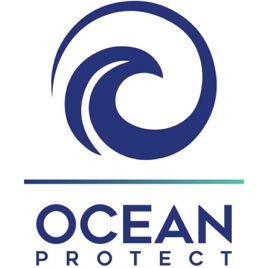
5
2
159
Ocean Protect Podcast
Ocean Protect

5
42
254
Bigger Than Us
Nexus PMG
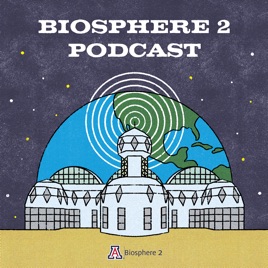
5
12
24
Biosphere 2 Podcast
Biosphere 2 University of Arizona
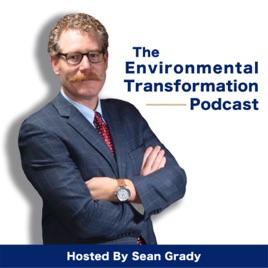
4.5
24
83
The Environmental Transformation Podcast
Sean Grady
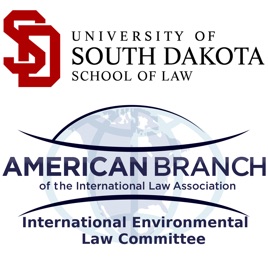
5
2
27
The Global Energy & Environmental Law Podcast
The International Environmental Law Committee of the American Branch of the International Law Association

5
8
29
Ryzzun Energy
Luis Angel | Ryzzun
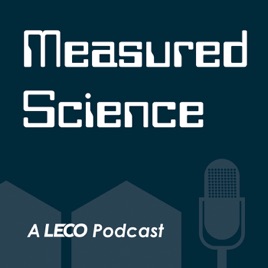
5
2
7
Measured Science
LECO Corporation
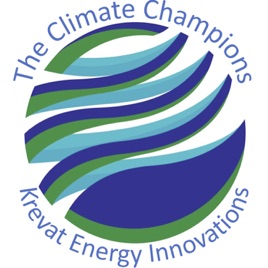
5
36
100
The Climate Champions
Lee Krevat

5
2
33
Rock Logic with Sean Kenny
Rock Logic with Sean Kenny
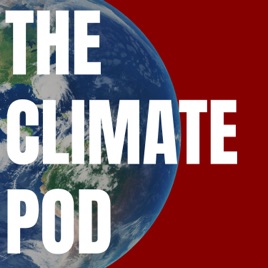
4.6
274
280
The Climate Pod
The Climate Pod



